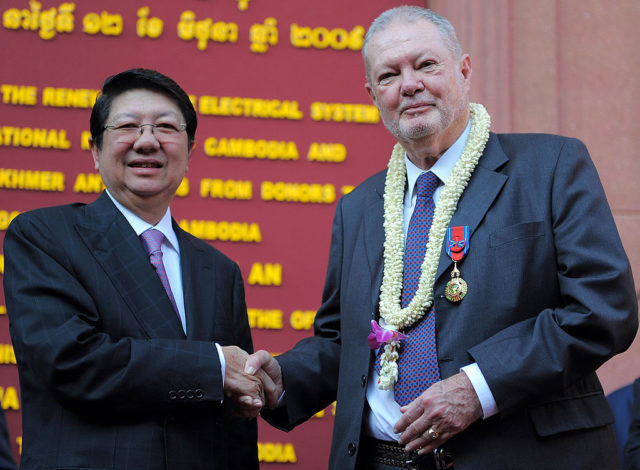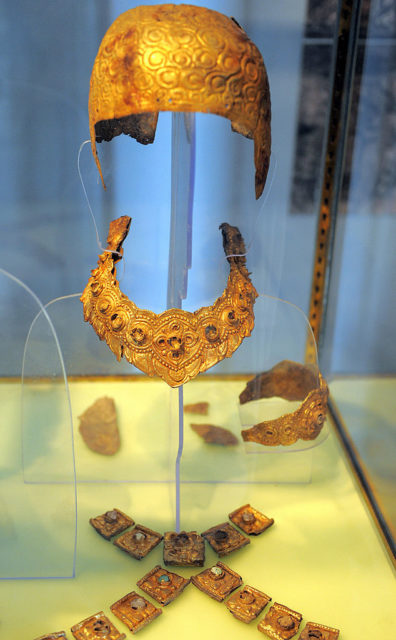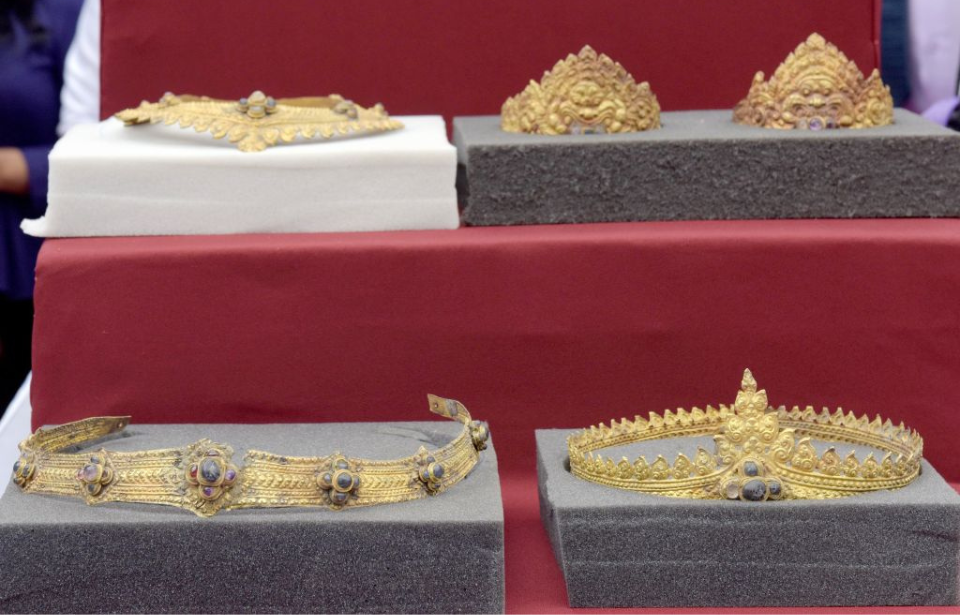Researchers in Cambodia knew that some of their country’s prized artifacts were missing. There were many stone carvings depicting unknown items on the walls of the incredible religious monument, Angkor Wat. As it turned out, the carvings were created in the likeness of recently recovered items that had been in the possession of a notorious art thief named Douglas Latchford.
Included in this incredible find are numerous pieces that scholars have never seen before.
Douglas Latchford
Douglas Latchford was both a legitimate art dealer and a smuggler. He was best known for his collection of Cambodian artifacts that he sold to museums around the world – and also kept for his own personal viewing. He made a habit of buying items directly from the farmers who discovered them, or from organized looters, believing that if he hadn’t then the precious artifacts would have been destroyed.

Despite his questionable means of acquiring these items, Latchford was awarded a Grand Cross of the Royal Order of Monisaraphon in 2008 for financial contributions to Cambodia’s national museum. The following year, he returned several gold pieces to the country and was given a “friendship medal” in exchange.
In 2019, he went into a coma, around the same time he was charged by prosecutors in New York for falsifying details about imported Cambodian artifacts. Latchford died in 2020, and the case was dropped. At the time, his collection of 125 pieces was valued at a staggering $50 million.
Cambodian crown jewels
Following his death, the Latchford family agreed to return all of the items now in their possession. Brad Gordon was in charge of the Cambodian investigation team, and traveled to London to meet with a representative of the family. He recalled the experience to the BBC. “I was driven (…) to an undisclosed location. In the parking lot was a vehicle with four boxes inside.” In those boxes were a total of 77 artifacts, including a solid gold bowl, and a variety of crowns and other jewelry.
"I felt like crying. I just thought – wow – the crown jewels of ancient Cambodian civilization packed into four boxes in the back of a car." My story on Cambodia's surprise jewellery discovery in London via @BBCNews: https://t.co/p7kwZQEJ9h
— Celia Hatton (@celiahatton) February 20, 2023
The collection certainly wasn’t what was expected, as only a few of the items were known to be in Latchford’s possession. Gordon was overwhelmed with emotion: “I felt like crying. I just thought – wow – the crown jewels of ancient Cambodian civilization packed into four boxes in the back of a car.” One of the crowns was later dated to the seventh century by researchers, making it a major find.
Returned to the rightful owners
These items have now been secretly returned to the capital city of Phnom Penh where they will eventually be put on display in the national museum. The excitement of their return is somewhat dampened by the fact that no one knows how Latchford came to be in possession of these treasures. If they were once located at Angkor Wat, as some researchers believe, they may have been taken by French colonizers, or during the civil war of the 1970s.

As impressive as these pieces are, Gordon and other Cambodian authorities believe that there are yet more to be discovered. They have access to a series of emails from when Latchford attempted to sell this collection in 2019.
More from us: Isabella Stewart Gardner Museum Theft: The Greatest Art Heist in History Remains Unsolved
Government witnesses have also attested that Latchford sold even more artifacts to museums around the world, including the British Museum.
